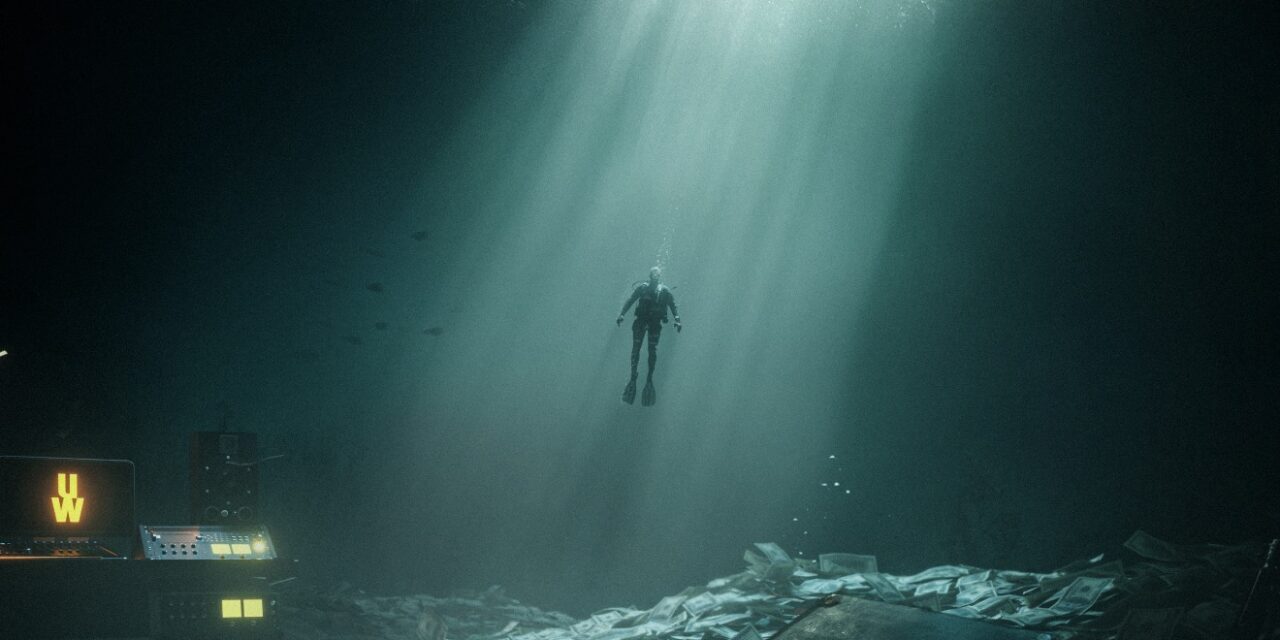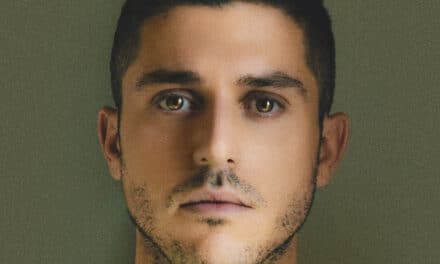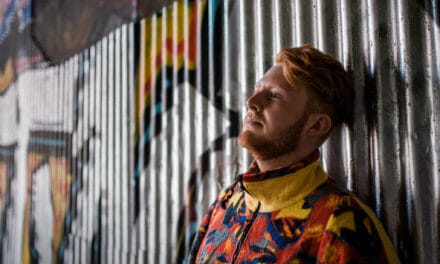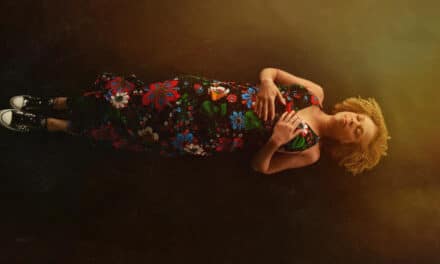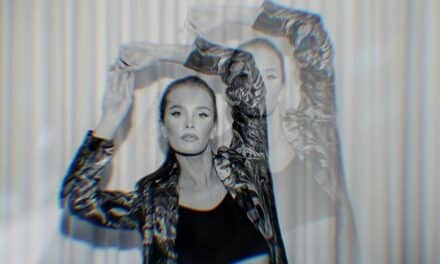In a moment that feels both inevitable and revolutionary, Dei V has released Underwater, a record that doesn’t just mark a new era—it defines it. Arriving right before three sold-out nights at the Coliseo de Puerto Rico José Miguel Agrelot, the album feels like the breath before surfacing, a crystallization of everything Dei V has been becoming.
Under the banner of his own Underwater Music PR, a proudly independent Puerto Rican label, Dei V crafts a dual world split between UNDER and WATER: one rooted in the grit of the streets, the other flowing through melody, sensuality, and emotional fluidity. It’s a concept that mirrors his trajectory—balancing hunger with harmony, authenticity with ambition.
“This album is my full essence,” Dei V says. “Underwater has everything — what got me here and who I am today. It’s the most complete project I’ve made; it was a genuine creative process, nothing forced, all real.”
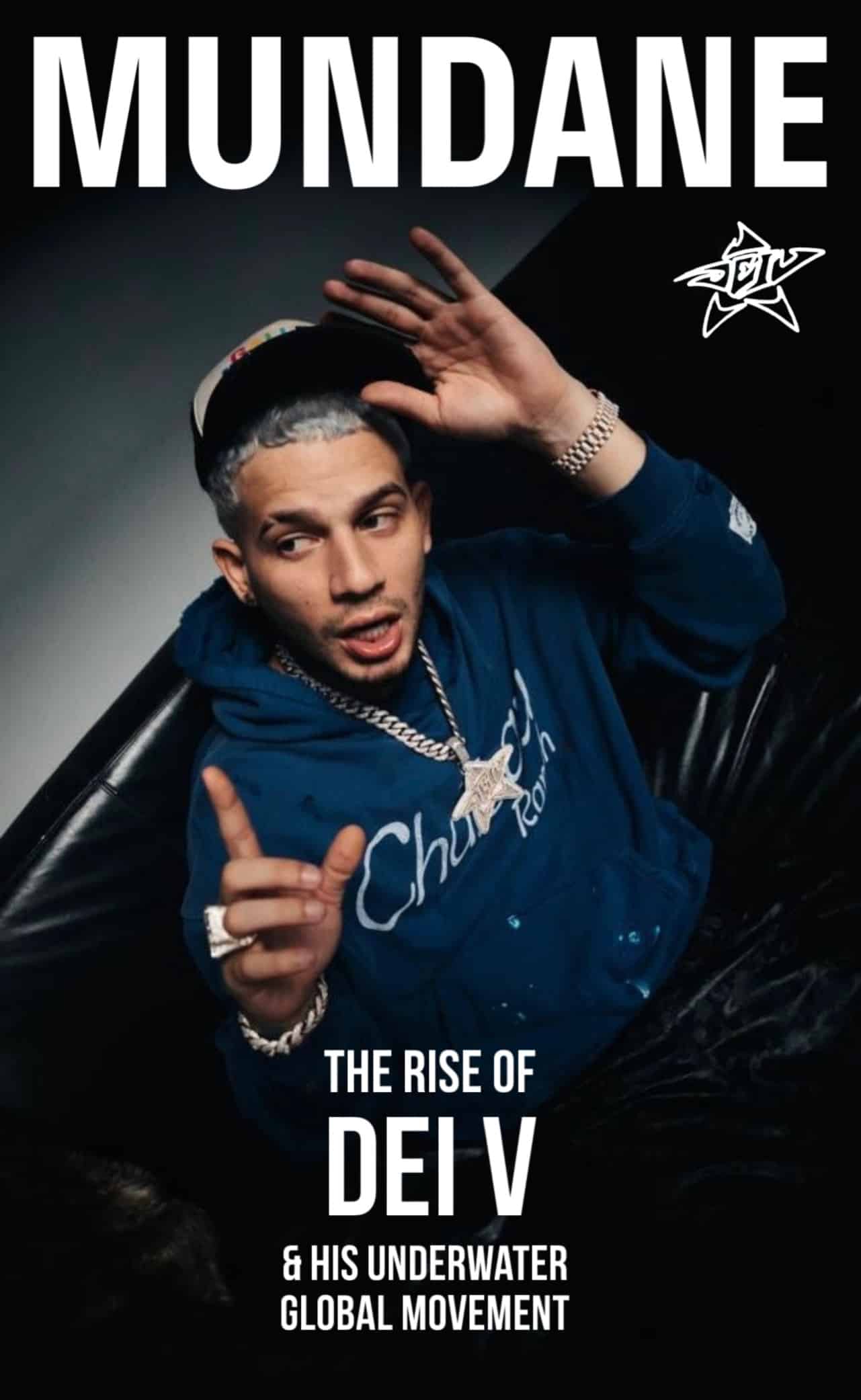
And it shows. The tracklist pulses with collaborations that blur the boundaries between legacy and emergence: Arcángel, Yandel, Ñengo Flow, Luar, Blessed, Fabriell, and CG, among others. It’s a constellation of voices orbiting around a core of raw self-knowledge.
Dei V stands at the edge of something massive — not just three historic shows, but a full-circle moment for a kid who turned his story into a soundtrack for a generation. Below, he opens up to Mundane about the lessons, the pressure, and the grounding faith behind Underwater.
You stepped into the spotlight during Bad Bunny’s residency, transforming a guest appearance into a moment of your own. In that moment, did you feel more like a continuing story or a sudden new chapter?
I definitely feel like a new chapter has opened up that allows me to continue my story and show my fans and new fans who I am and my potential as an artist.
Your Spotify presence now reaches 20 million monthly listeners — when did the numbers stop being abstract metrics and start feeling like real lives you’re touching?
When I started going on tour and actually meeting the fans in person and hearing their stories about how long they’ve listened to me and supported me, the numbers came to life. I realized it isn’t just stats — it’s real people who connect with my music.
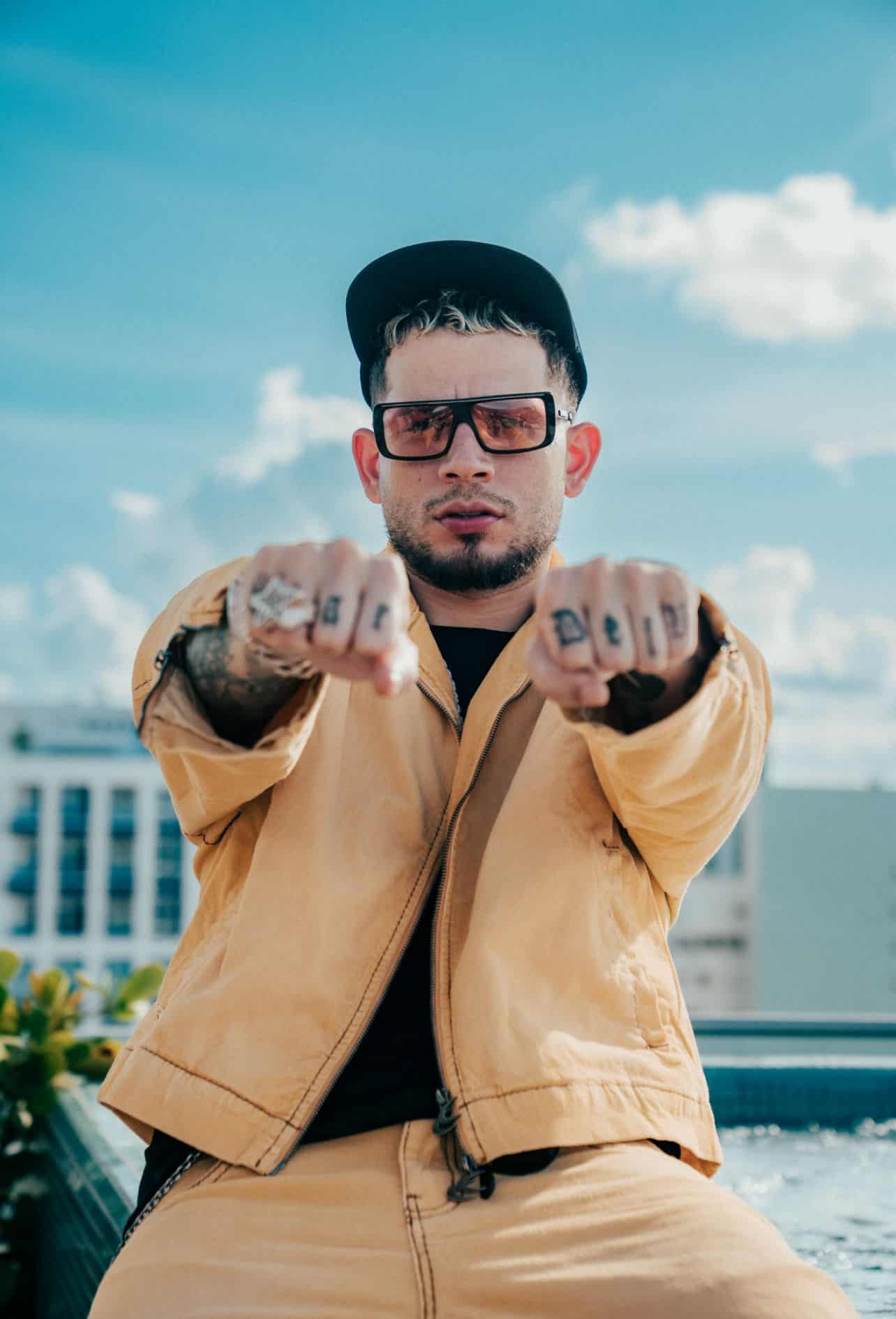
“Veldá” (with Bad Bunny and Omar Courtz) has over 70 million views. How do you balance the pressure of numbers with the impulse to stay creatively honest?
I just go with the flow. Since I try my best to keep myself genuine in my work, I believe staying true to myself and my art is what keeps me balanced.
The idea of evolving from support act to headliner is a journey of many small ruptures. Which minor turning point — a lyric, a show, a decision — do you remember as quietly seismic in your path?
There was one small club show early on where only a handful of people knew my songs. Halfway through, I noticed a fan mouthing every lyric like it was their own story. That was seismic for me. It shifted my perspective from me performing to us sharing. That’s when I realized music grows not in big explosions, but in quiet connections that multiply.
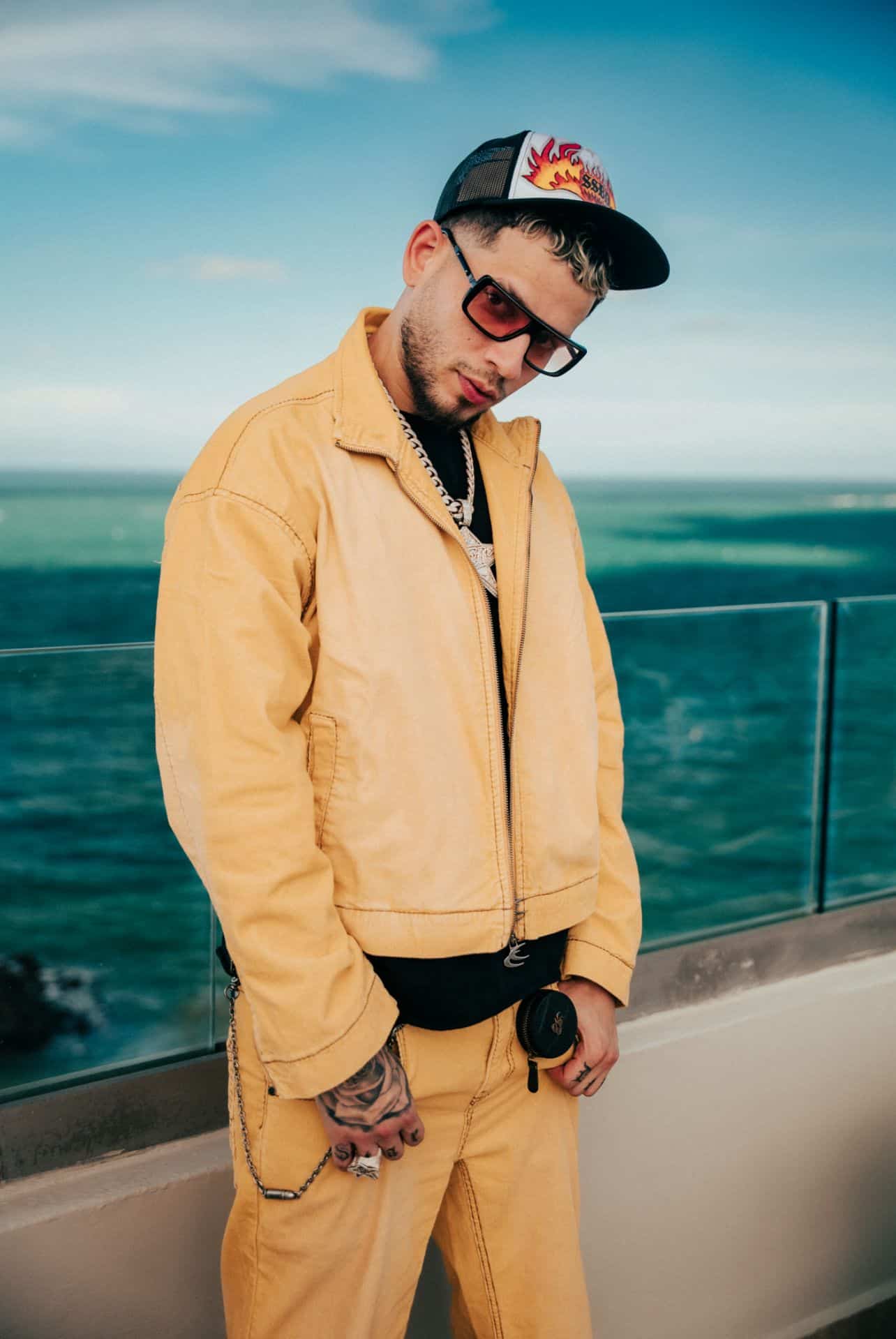
You’ve been part of a scene that demands both authenticity and spectacle. When did you realize your art had to carry both your roots and your ambition?
I realized it the first time I tried to polish myself too much. It didn’t feel real. The scene is full of lights and spectacle, but people can feel when you’re hiding parts of yourself. I learned that carrying both my roots and my ambition means I can step into bigger spaces without losing the foundation of who I am. Being from Puerto Rico, being unapologetically authentic — that’s what’s gotten me here, and I’m sticking with it.
Performing at the Coliseo in Puerto Rico is almost a rite of passage. How do you prepare internally to carry not just a show, but a legacy?
The Coliseo isn’t just a venue; it’s history. To prepare, I remind myself I’m not stepping onto that stage alone. I carry my family, God, my community, and every person who believed in me before the spotlight. I ground myself in gratitude first — when I’m rooted, I can let the legacy flow through me instead of feeling intimidated by it.
When you look back on your EPs, collaborations, and now this album, what connects all those eras for you?
The common thread is hunger — not just for success, but for expression. Each era was me testing, learning, experimenting. Every project teaches me something new, and that’s how I keep growing.
Genre in today’s urban landscape is fluid. Do you feel boxed in by the “urban” label, or liberated by it?
I feel like my sound and my ability as an artist are so versatile and unique that there’s no box that can contain me. It’s liberating to know what I’m capable of creating.
In building your next album, which voices are you trying to make space for — your idols, collaborators, or future selves?
I’m trying to make space for my future self — the artist I haven’t fully become yet. Of course, I carry my idols and collaborators with me, but this project is also about giving myself room to grow into sounds, emotions, and stories I haven’t tapped into yet.
With three sold-out shows ahead, what do you hope the audience remembers — not just the songs, but the feeling you leave behind?
I hope they walk away with a sense of belonging, like they weren’t just at a concert but part of something larger. Music comes and goes, but the feeling of being seen, heard, and lifted in a room with thousands of others — that stays forever. If they remember that, then I’ve done my job. And being from Puerto Rico, selling out multiple nights at the Coliseo, that’s something I’m incredibly proud of. I hope I make my family, colleagues, and island proud too.

